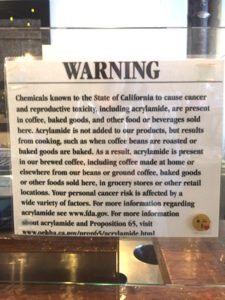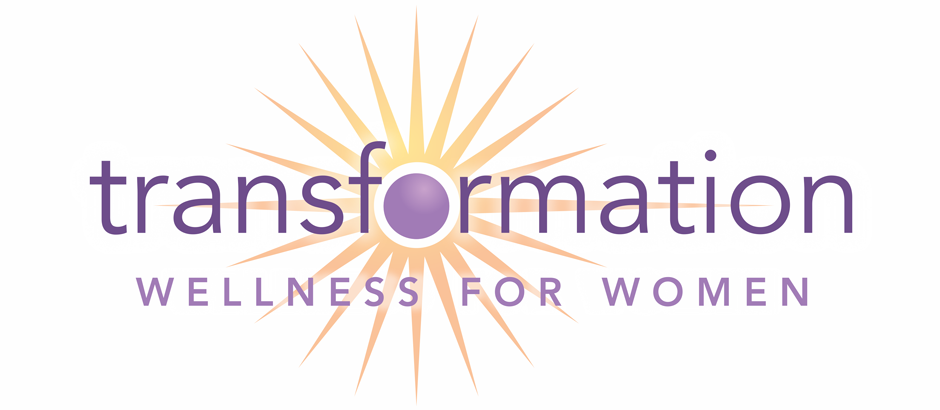Cancer: What Midlife Women Can & Can’t Control
Cancer hit two of my family members in the past 6 months.
It’s not surprising, as statistics tell us that for us, 1 in 3 women will develop cancer in their lifetime.
Knowing this, it’s understandable to think that it’s inevitable for you too, if not sooner, probably later; however, my hope is that you’re also aware that there are things you can do to decrease your risk.
My aim is to share some facts about cancer that you might not be aware of that will, with any luck, leave you more hopeful.
What you choose to do with it is up to you, but nevertheless, it’s important to know what you can and can’t control when it comes to cancer.
It can be scary to feel like we can’t avoid being exposed to the influences of cancer.
In fact, just today, as I waited for my drink at my local coffee shop, I noticed a new sign they just put up:

No sooner than me pulling out my phone to take this picture of the sign, did the barista see me and walk up to tell me about how they’re in a big lawsuit right now about having to put the sign up.
Nevertheless, I accepted my drink and now sit here writing about cancer and enjoying my (potentially carcinogenic) coffee, per my choosing.
Again, these “signs” are everywhere, even if they’re not visible – from the air we breathe to the water we drink, we’re constantly exposed to an environment that is doing more to heighten our risk of getting cancer than prevent it.
That’s why we must be proactive about getting regular cancer screenings.
Besides regular doctor visits, let’s take a look at what you can and can’t control on a day-to-day basis when it comes to cancer.
I rarely hear anyone wanting the good news first, so here’s the bad news:
What you CAN’T control when it comes to cancer is your genetics.
But, thankfully (here comes the good news), only 5-10% of all cancer cases are due to inherited genetic defects.
More good news: 90-95% are due to environment and lifestyle factors.
This is good news because that means there’s a lot you can do to reduce your risk.
To get a better understanding of what we’re up against, let’s look at the 5 Most Deadly Cancers in Women:
- Lung & Bronchus
- Breast
- Colon & Rectum
- Pancreas
- Ovary
Just to be clear, while breast cancer is the most common type of cancer in women, lung cancer causes more deaths each year.
Because it’s the deadliest, let’s take a look at this often over-looked type of cancer (lung & bronchus), what you can do about it, and the steps I’ve taken to avoid it.
Besides smoking, air pollution is a huge factor in developing lung and bronchus cancer.
Living in a big city (like I do) inevitably makes the air dirtier, so a few things you can do to help prevent lung and bronchus cancer is to obviously not smoke and to limit your time in big cities that have a lot of polluting cars and tall buildings that trap that bad air in a concentrated space.
Here are two additional steps I’ve taken in the past few years to help protect myself further:
1. I downloaded an app on my phone called Smog Report that tells me the air quality in my city, so that I know if it’s “Good, Moderate, Unhealthy for Sensitive Groups (like the elderly or children), Unhealthy, or Very Unhealthy”.
Oftentimes, this determines whether I decide to go outside or not. It has, unfortunately on occasion, caused me to cancel my plans if it had to do with being outside for an extended period of time.
2. I also have an indoor Rabbit Air purifier. Sure, it put me back about $500 and you do have to change the filter annually (about $100/year), but my health is worth it to me.
Like most things having to do with your health, it’s what you do most of the time, not once in a while, that affects your chances of developing cancer.
Generally speaking, when it comes to developing cancer, here are some lifestyle factors that also increase your risk:
- Poor nutrition
- Heavy alcohol use
- Obesity
- Low activity levels
- Exposure to pollutants like formaldehyde, food additives, and pesticides
The take-home message is that while you can’t do anything about the genes you inherited, you can do something about the choices you make on a daily basis.
If you want to lower your chances of getting cancer, it’s imperative that you maintain a healthy diet, limit your consumption of processed foods, and stay active.
You don’t have to become a health nut to beat your chances of getting cancer, but you do need to get regular check-ups, and create healthy lifestyle habits.
If you need help with this, that’s what I’m here for.
So, there you have it – the good and not-so-good news about cancer.
In my opinion, it’s hopeful to know that there’s a lot you can do to avoid having cancer take your life, but you must take action.
One of my favorite reminders is: “Problems that are procrastinated on are amplified.” –Rory Vaden
What small change toward lowering your risk of cancer can you make TODAY?
It’s Your Turn to Take Care of You,

Need Some Help?
 Book a time to talk with me here.
Book a time to talk with me here.
Source: https://www.unitypoint.org/homecare/article.aspx?id=c9f17977-9947-4b66-9c0f-15076e987a5d



